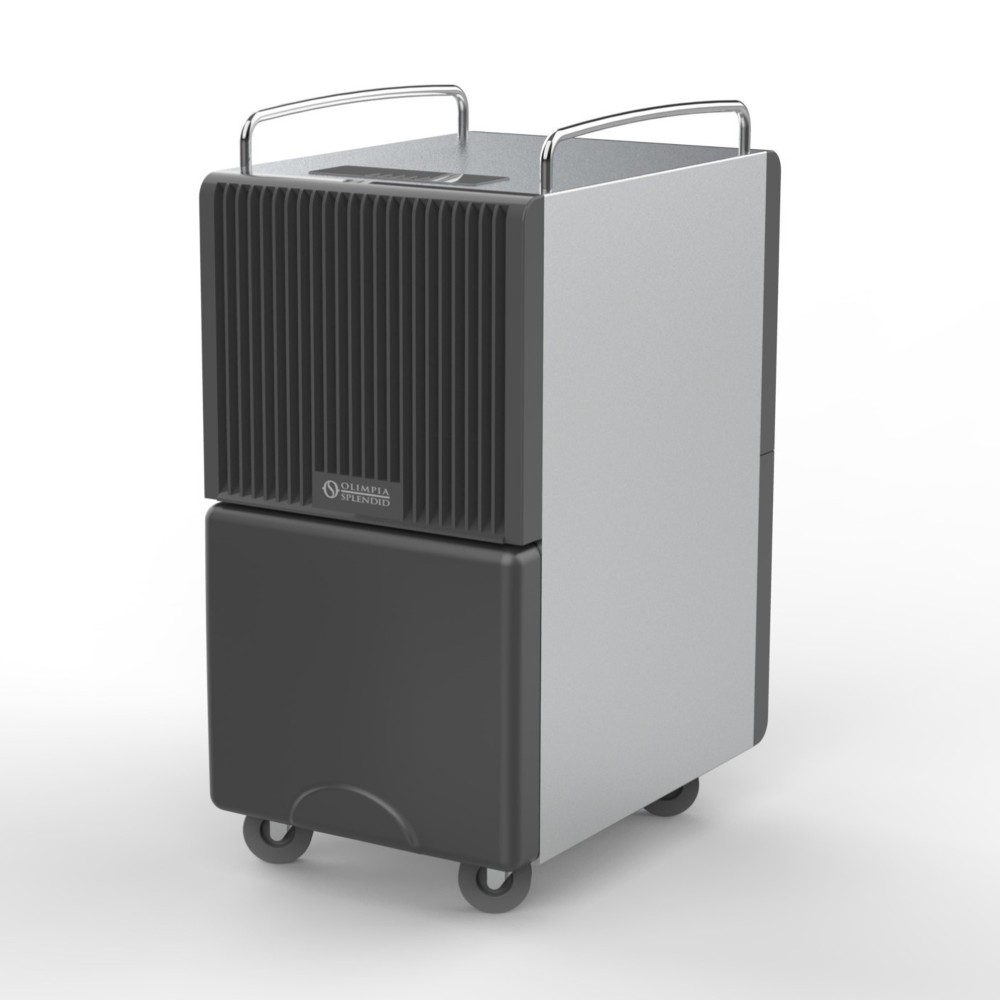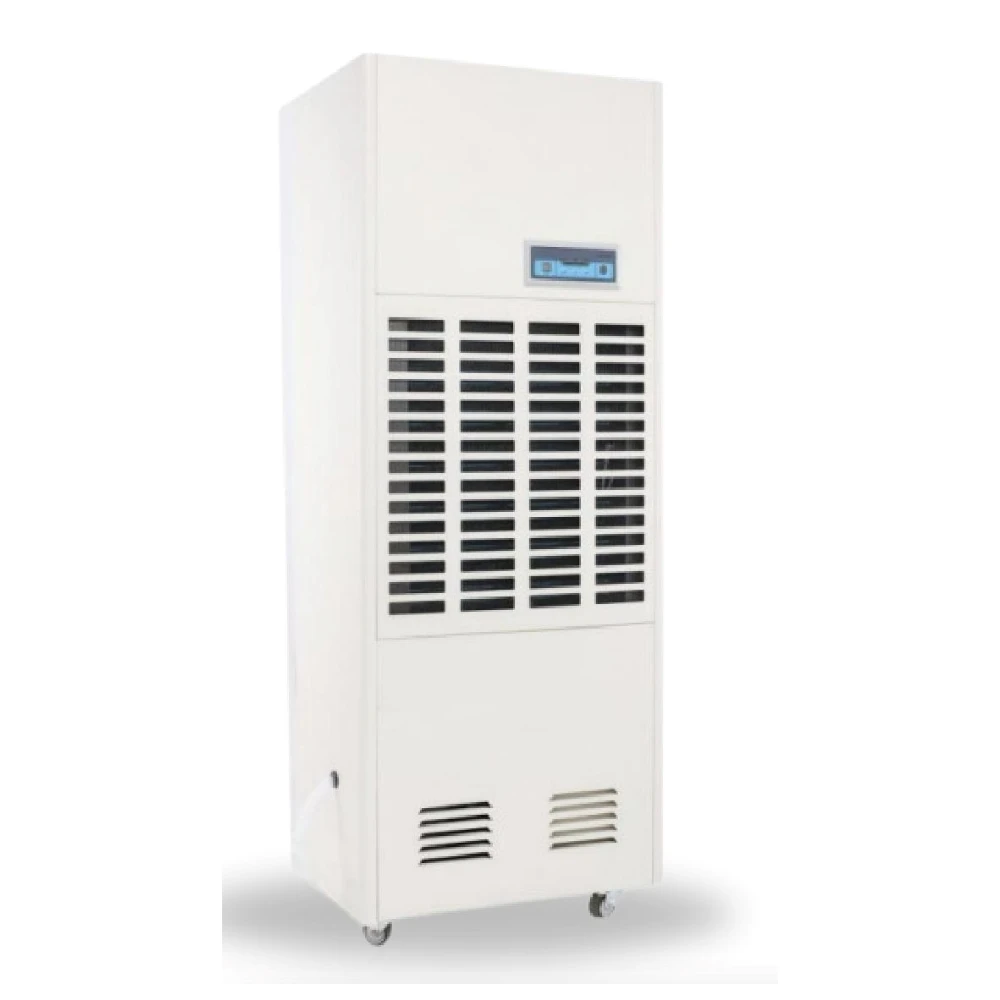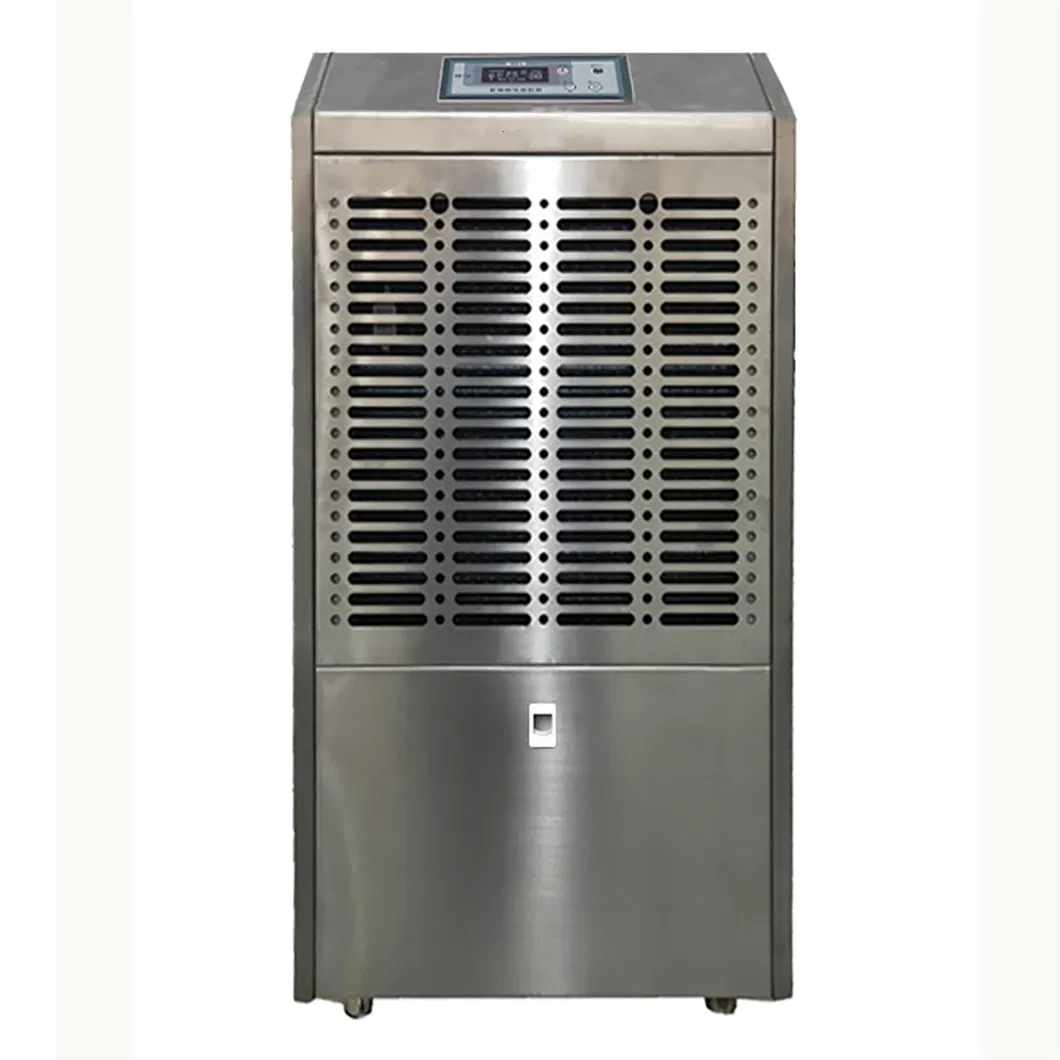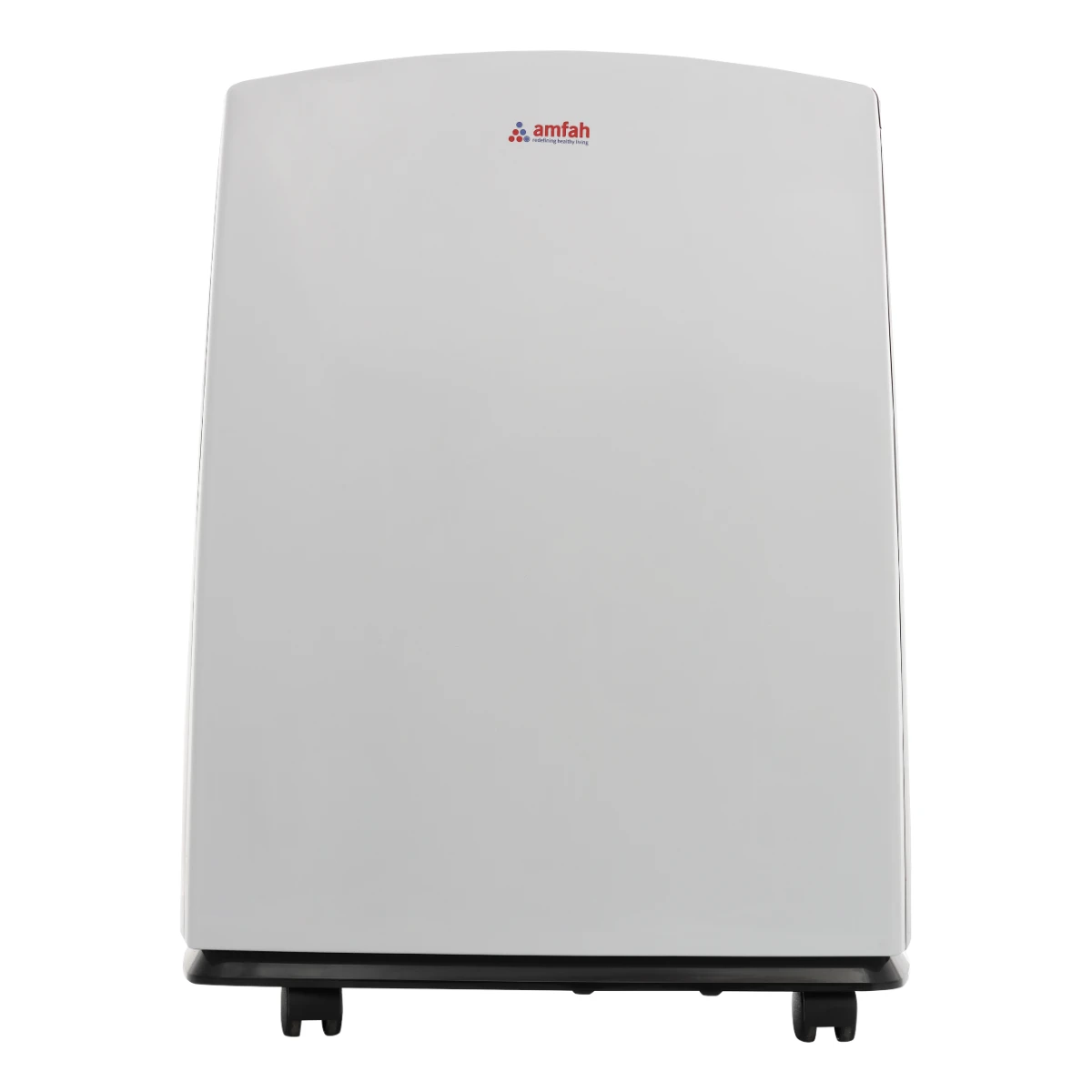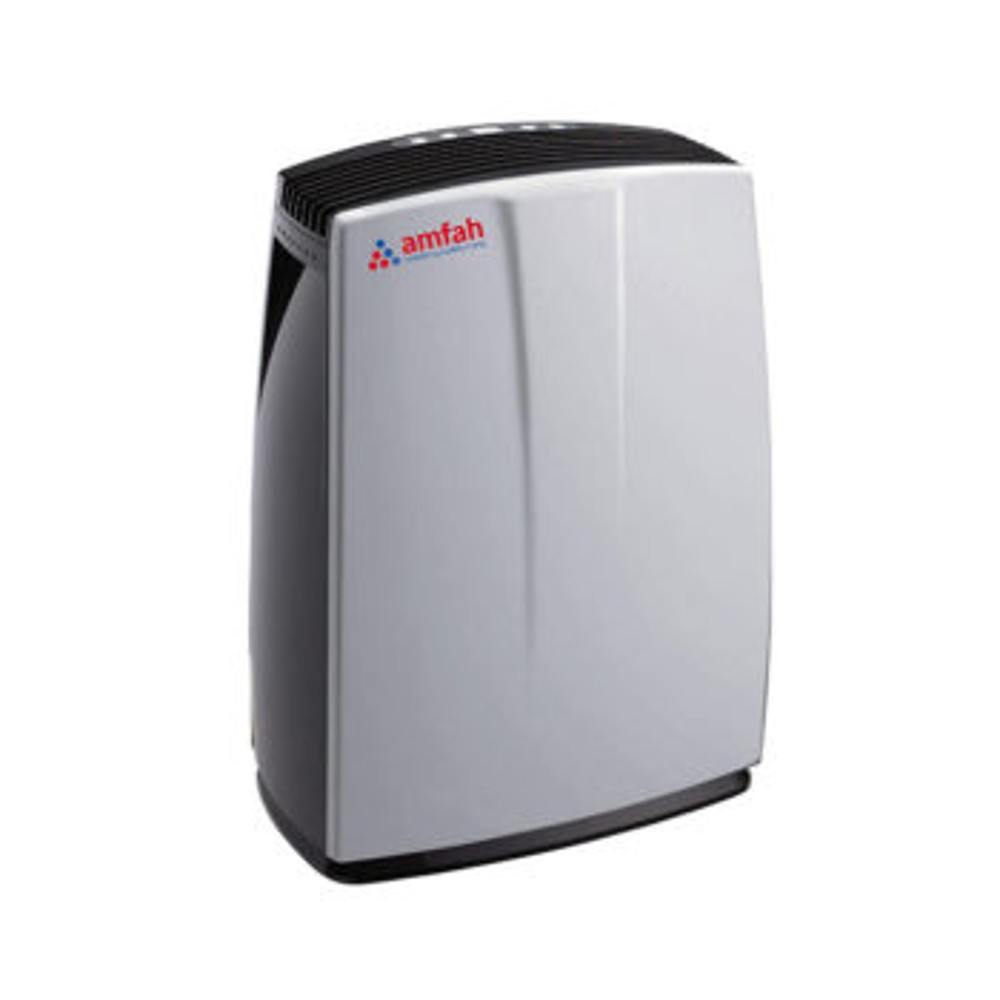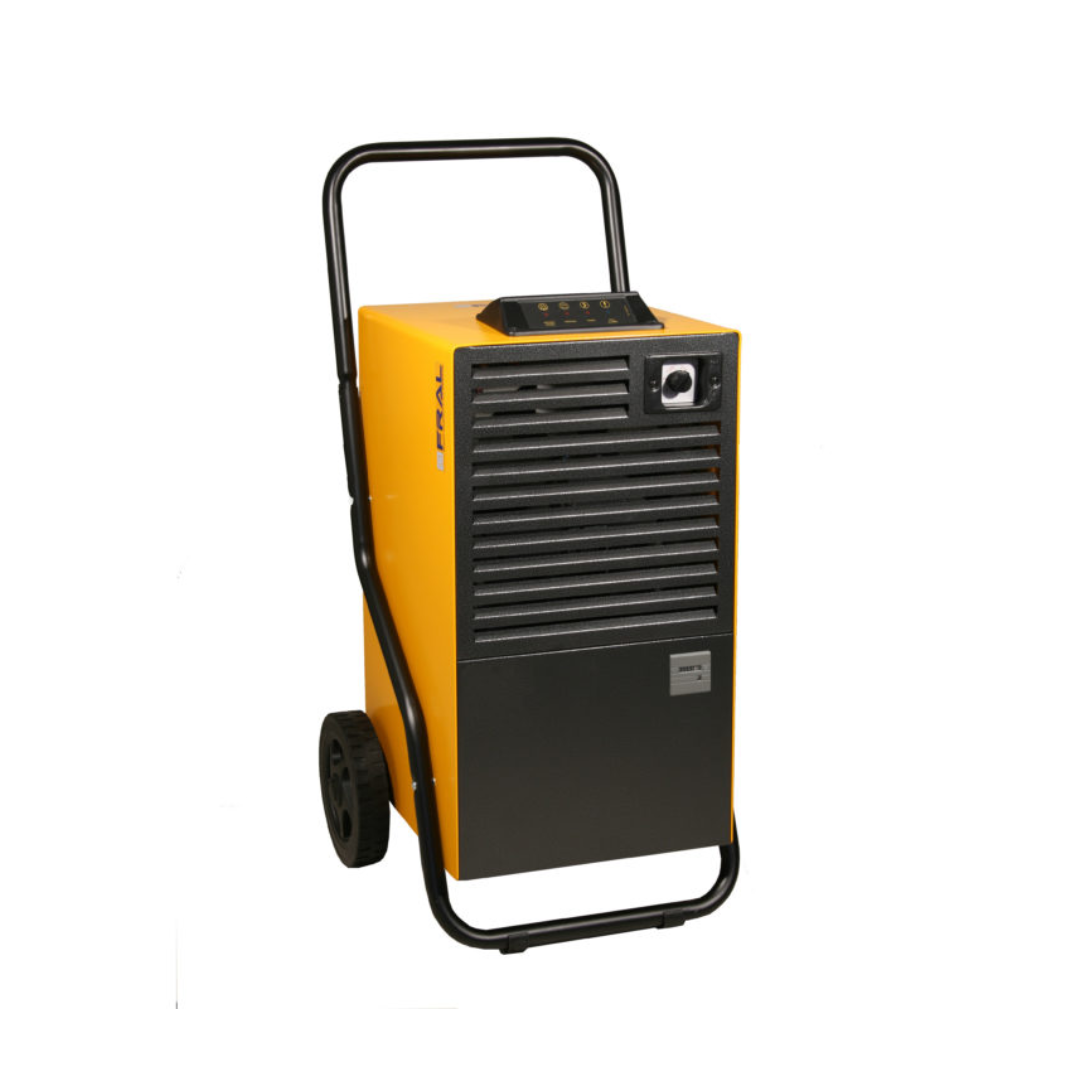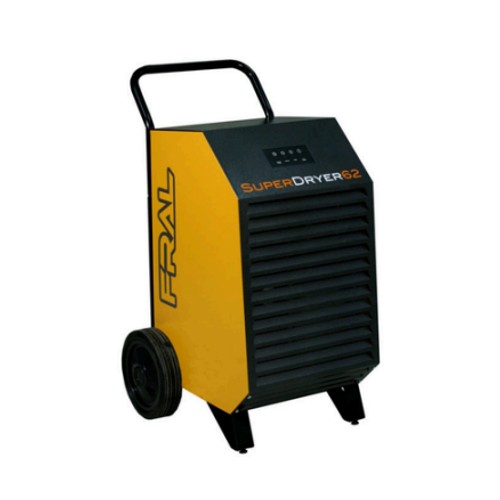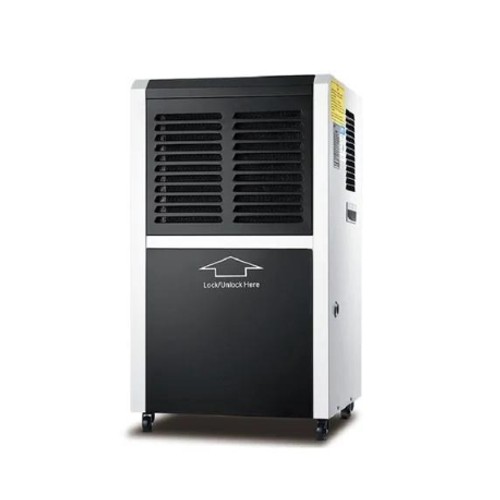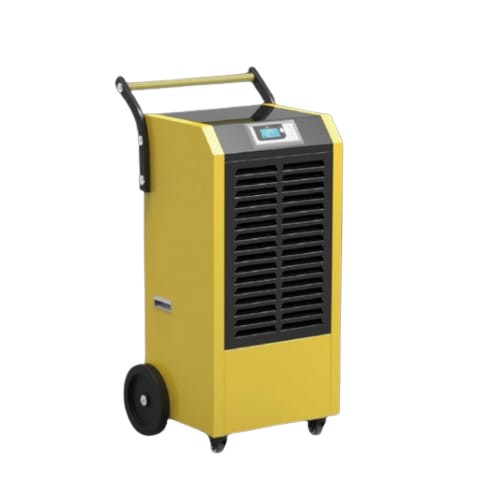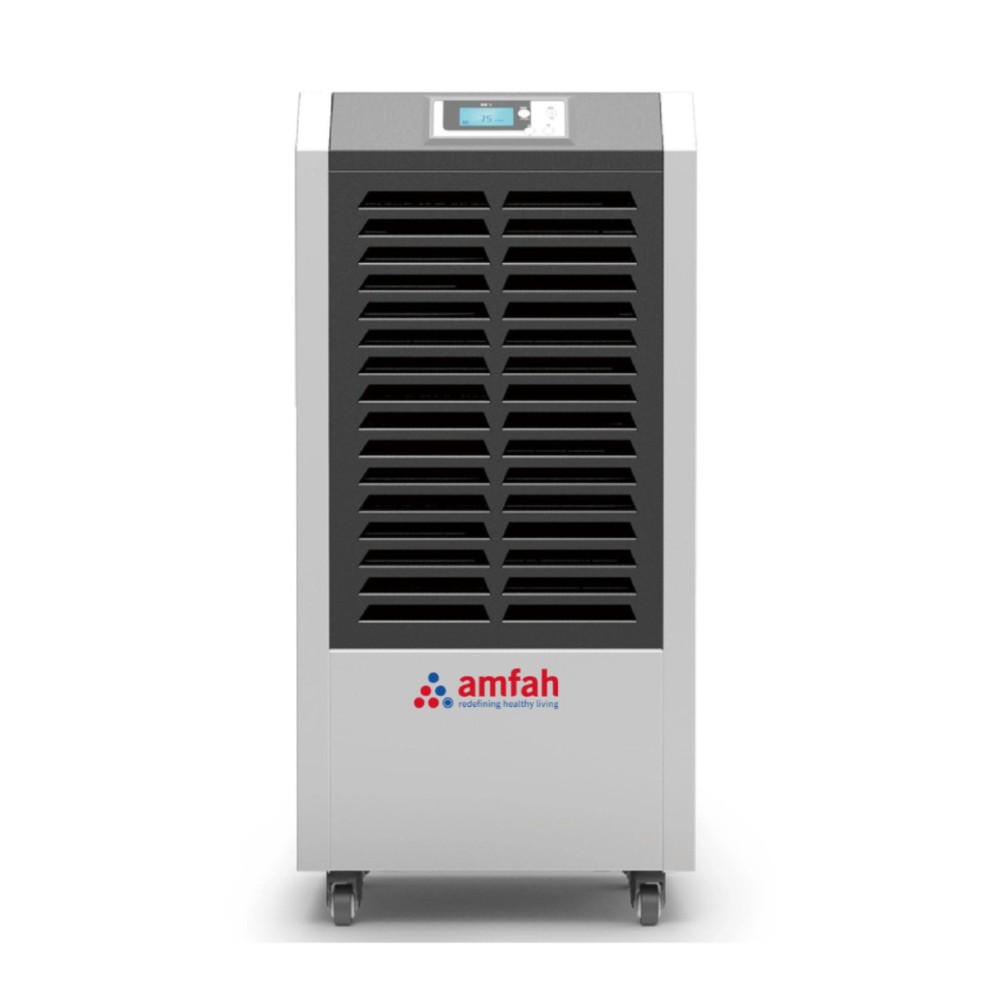Industrial Range (Italy)
Economy Range (Taiwan)
Premium Range (Italy)
Economy Range (Taiwan)
In hospitals and clinics, maintaining optimal indoor air quality (IAQ) is crucial for patient safety, comfort, and overall health outcomes. High humidity levels can lead to various problems, including the proliferation of mold, increased allergens, and the risk of infection. Dehumidifiers are an essential tool in these healthcare environments, offering numerous benefits.
Please refer to https://amfah.com/ for further detailBENEFITS
1. Infection Control: High humidity levels can create an environment conducive to the growth of bacteria, viruses, and mold, increasing the risk of hospital-acquired infections (HAIs). Dehumidifiers help maintain humidity levels between 40-60%, reducing the likelihood of pathogen proliferation and supporting infection control protocols critical to patient safety.
2. Mold and Mildew Prevention: Mold and mildew thrive in damp environments, posing serious health risks, particularly for patients with respiratory issues or weakened immune systems. By removing excess moisture from the air, dehumidifiers inhibit mold growth, ensuring a healthier indoor environment in hospitals and clinics.
3. Enhanced Patient Comfort: Patients recovering in hospitals or receiving treatment in clinics require a comfortable environment to promote healing. High humidity can lead to discomfort, making it difficult for patients to breathe or sleep. Dehumidifiers help create a more pleasant atmosphere, enhancing patient comfort and recovery.
4. Improved Air Quality: Dehumidifiers contribute to better IAQ by lowering humidity levels, which can decrease the presence of allergens such as dust mites, mold spores, and pet dander. Improved air quality is essential for patients with allergies, asthma, or other respiratory conditions, reducing the risk of complications during their stay.
5. Protection of Medical Equipment: Sensitive medical equipment, including imaging machines, ventilators, and laboratory devices, can be adversely affected by high humidity levels. Dehumidifiers help protect this valuable equipment by preventing condensation, ensuring optimal performance and longevity, and reducing maintenance costs.
6. Energy Efficiency: Modern dehumidifiers are designed to be energy-efficient, helping hospitals and clinics manage their energy consumption while maintaining a safe and comfortable environment. By controlling humidity, these devices can also enhance the effectiveness of heating, ventilation, and air conditioning (HVAC) systems, further reducing energy costs.
7. Support for Special Areas: Specific areas within hospitals and clinics, such as maternity wards, neonatal units, and surgical rooms, require precise humidity control to ensure patient safety. Dehumidifiers are crucial in maintaining the ideal environment in these sensitive areas, protecting vulnerable populations from airborne infections and other health risks.
8. Reduced Odors: High humidity can lead to the buildup of unpleasant odors in healthcare facilities. Dehumidifiers help reduce moisture levels, minimizing odors associated with dampness, mold, or mildew. A more pleasant-smelling environment contributes to a better experience for patients and visitors alike.
9. Enhanced Staff Productivity: Healthcare professionals work best in comfortable environments. By maintaining optimal humidity levels, dehumidifiers contribute to a more conducive workspace, improving staff morale and productivity. A comfortable environment leads to better patient care and overall operational efficiency.
2. Mold and Mildew Prevention: Mold and mildew thrive in damp environments, posing serious health risks, particularly for patients with respiratory issues or weakened immune systems. By removing excess moisture from the air, dehumidifiers inhibit mold growth, ensuring a healthier indoor environment in hospitals and clinics.
3. Enhanced Patient Comfort: Patients recovering in hospitals or receiving treatment in clinics require a comfortable environment to promote healing. High humidity can lead to discomfort, making it difficult for patients to breathe or sleep. Dehumidifiers help create a more pleasant atmosphere, enhancing patient comfort and recovery.
4. Improved Air Quality: Dehumidifiers contribute to better IAQ by lowering humidity levels, which can decrease the presence of allergens such as dust mites, mold spores, and pet dander. Improved air quality is essential for patients with allergies, asthma, or other respiratory conditions, reducing the risk of complications during their stay.
5. Protection of Medical Equipment: Sensitive medical equipment, including imaging machines, ventilators, and laboratory devices, can be adversely affected by high humidity levels. Dehumidifiers help protect this valuable equipment by preventing condensation, ensuring optimal performance and longevity, and reducing maintenance costs.
6. Energy Efficiency: Modern dehumidifiers are designed to be energy-efficient, helping hospitals and clinics manage their energy consumption while maintaining a safe and comfortable environment. By controlling humidity, these devices can also enhance the effectiveness of heating, ventilation, and air conditioning (HVAC) systems, further reducing energy costs.
7. Support for Special Areas: Specific areas within hospitals and clinics, such as maternity wards, neonatal units, and surgical rooms, require precise humidity control to ensure patient safety. Dehumidifiers are crucial in maintaining the ideal environment in these sensitive areas, protecting vulnerable populations from airborne infections and other health risks.
8. Reduced Odors: High humidity can lead to the buildup of unpleasant odors in healthcare facilities. Dehumidifiers help reduce moisture levels, minimizing odors associated with dampness, mold, or mildew. A more pleasant-smelling environment contributes to a better experience for patients and visitors alike.
9. Enhanced Staff Productivity: Healthcare professionals work best in comfortable environments. By maintaining optimal humidity levels, dehumidifiers contribute to a more conducive workspace, improving staff morale and productivity. A comfortable environment leads to better patient care and overall operational efficiency.



